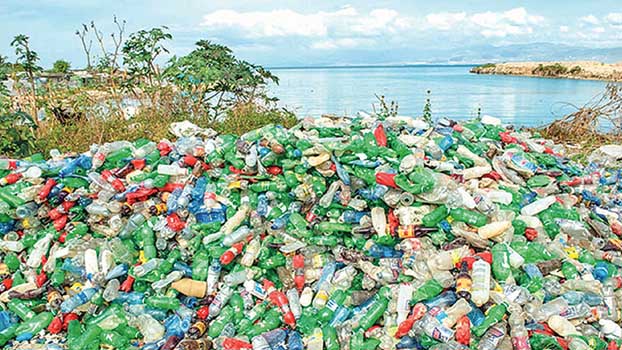Plastic pollution poses grave threat to health, nature

The scale of plastic pollution has become alarming with millions of tonnes of plastic waste existing almost everywhere posing serious threats to human and animal health and destroying nature as well.
Environmental and health experts pointed out that due to such non-disposable plastic waste and absence of proper plastic waste management lead to gradual decrease in soil fertility.
According to Dhaka South City Corporation (DSCC), the amount of waste generated daily is on an average 2,210 metric tons. The daily generated waste of North City Corporation is about two thousand 855 metric tons.
Waste volume soars up by 18 percent every year, and polythene is a big part of this huge waste. Polythene does not rot or get disposed like organic materials even if it has been lying on the ground for a long time.
Talking to the Bangladesh Post environmental researcher and a green activist Zahidur Rahman feared that this polythene problem appears as a catastrophe.
“Polythene is being thrown away with waste. The chances of recycling these polybags are thin. As a result, abandoned polythene hills have accumulated in the landfills of Aminbazar and Matuail in Dhaka. Again, it is causing serious pollution of water by falling into the rivers through drains and canals”, he added.
He continued “Although a law has been enacted banning polythene, its implementation is less in practice.”
However, he claimed that common folks are being forced to use the polybag as there is no alternative available.
Additional Chief Waste Management Officer, Engineer Shafiqur Rahman, Dhaka North City Corporation (DNCC) said, "No technology has yet been introduced in Dhaka to convert waste into energy in an environmentally friendly manner. Thus, the north city is working towards that goal.”
He said “Polybag is a waste that does not rot for a long time. It is not possible to get rid of this substance without recycling or burning it. So now we are thinking of converting waste into energy.”
Wishing not to be named an official of DSCC told The Bangladesh Post that mobile courts were conducted earlier to stop polybags along with the Department of Environment, the Directorate of National Consumers' Right Protection, and the City Corporation. The city corporation is quite aware of this.
He said, but even after this, due to the shortage of manpower in the city corporation, the operations could not be conducted properly. Nevertheless, there are plans to do something sustainable to stop polybags.
Elucidating health impact of polythene, Dr. Aminul Islam of Dhaka Medical College and Hospital (DMCH) told the Bangladesh Post, “From raw materials to grocery stores or hawkers to shopping malls, polythene bags are available everywhere. On the one hand, it is ominous to balance the environment. At the same time, it is creating waterlogging in the city. These banned polythene bags are also increasing the risk of various diseases including cancer.”
The use, production, marketing, and transportation of polythene bags were banned in Bangladesh under the Environmental Protection Act-1995. Section 15 of the law states that if a person produces banned polythene material, he can be imprisoned for 10 years or fined Tk 10 lakh, or even both. And if polythene is being marketed by an individual, he will suffer six months jail and a fine of Tk 10,000.




